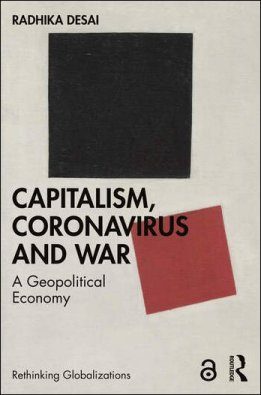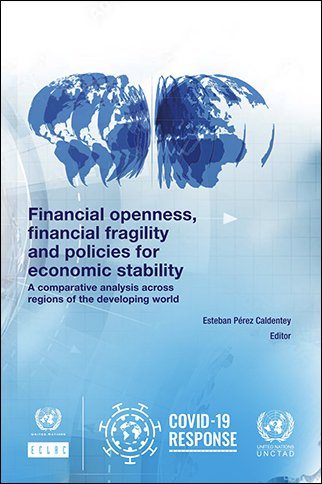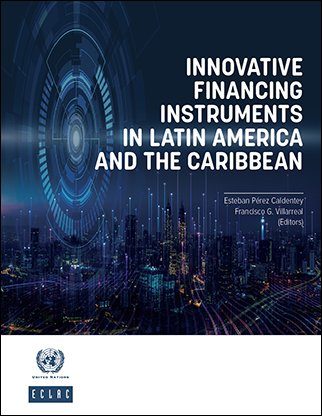Publisher: Third World Network Year: 2023 No. of pages: 42 Download now About the Book…
Capitalism, Coronavirus and War: A geopolitical economy Radhika Desai
 ISBN: 9781032059501
ISBN: 9781032059501
Publisher: Routledge
About the book
Capitalism, Coronavirus and War investigates the decay of neoliberal financialised capitalism as revealed in the crisis the novel coronavirus triggered but did not cause, a crisis that has been deepened by the conflict over Ukraine and its repercussions across the globe.
Leading domestically to economic and political breakdown, the pandemic accelerated the decline of the US-led capitalist world’s imperial power, intensifying the tendency to lash out with aggression and militarism, as seen in the US-led West’s New Cold War against China and the proxy war against Russia over Ukraine. The geopolitical economy of the decay and crisis of this form of capitalism suggests that the struggle with socialism that has long shaped the fate of capitalism has reached a tipping point. The author argues that mainstream and even many progressive forces take capitalism’s longevity for granted, misunderstand its historical dynamics and deny its formative bond with imperialism. Only a theoretically and historically accurate account of capitalism’s dynamics and historical trajectory, which this book provides, can explain its current failures and predicament. It also reveals why, though the pandemic by revealing capitalism’s obscene inequality and shocking debility—prompted the most serious critiques of capitalism to emerge in decades, hopes of ‘building back better’ were so quickly dashed. This book sheds searching light on the dominant narratives that have normalised the neoliberal financialised capitalism and the dollar creditocracy dominating the world economy, with even critics unable to link capitalism’s neoliberal turn to its financialisations, historical decay, productive debility and international decline. It contends that only by appreciating the seriousness of the crisis and rectifying our understanding of capitalism can progressive forces thwart a future of chaos and/or authoritarianism and begin the long task of building socialism.
This book will be of great interest to students, scholars and researchers of international relations, international political economy, comparative politics and global political sociology.
The Open Access version of this book, available at www.taylorfrancis.com, has been made available under a Creative Commons Attribution-Non Commercial-No Derivatives 4.0 license. Thanks to the support of libraries working with Knowledge Unlatched www.knowledgeunlatched.org
Table of Contents
1) Introduction: resumption of history, return of choice
2) Capitalism as contradictory value production
3) The geopolitical economy of capitalism and socialism
4) Neoliberalism and its financialisations
5) The unexpected reckoning
6) Know your enemy: between pseudo-civic neoliberalism and (neo)fascism?
7) Capitalism in the balance of international power
8) Conclusion: what is to be done?
About the Author
Radhika Desai is Professor in the Department of Political Studies and Director of the Geopolitical Economy Research Group at the University of Manitoba, Canada, and Convenor of the International Manifesto Group.
Open Access Content
Open Access content has been made available on our eBook platform.
Read Full Book – Open Access Opens in new tab or window
Critics’ Reviews
“Through an astute, timely, and expansive analysis of our political and theoretical landscape, Radhika Desai’s latest book clears new ground on which to build a renewed left movement against the geopolitical rule of capital. Returning to Marx’s thought and rescuing it from its myriad distortions provides the conceptual clarity required to understand the structural and historical factors responsible for producing the overwhelming and indisputable failures of capitalism. By critiquing responses by both the right and left to the complex international crises we face—from Modern Monetary Theory and “pseudo-civic neoliberalism” to social democracy and anti-communist leftism—Capitalism, Coronavirus and War offers not only a compelling account of how we ended up in our current situation but, more importantly, an accessible roadmap for eliminating global inequality, oppression, and imperialist war. This provocative, intricately reasoned, and ultimately inspiring treatise is a welcome contribution to the ongoing global struggle for socialism that unequivocally demonstrates the necessity of the communist party, socialist planning, and global solidarity of working and oppressed peoples necessary for finally ridding the world of the scourges of capital. Readers will, wherever they currently stand on these topics, leave the text with a radically transformed understanding of the path that lies ahead.”
Derek R. Ford, Associate Professor of Education Studies, DePauw University, USA; author of Marxism, Pedagogy and the General Intellect; editor of LiberationSchool.org; and contributing editor to the Hampton Institute
“Drawing out the contradictions at the core of contemporary capitalism that precipitate recurring crises—illustrated by the outbreak of and damage inflicted by the Covid-19 pandemic and the descent into debilitating proxy wars across the globe Radhika Desai’s book challenges the perception that capitalism is here to stay. Backing that argument with serious analysis that takes forward progressive assessments of the nature of contemporary capitalist dynamics and the geopolitical fallout, the book makes a case for transcending the system. That canvas allows for a wide audience. Researchers and students as well as activists and organisers can benefit immensely from reading the book.”
C. P. Chandrasekhar, Senior Research Fellow, Political Economy Research Institute, UMass, Amherst, USA; and former Professor, Centre for Economic Studies and Planning, Jawaharlal Nehru University, India
“This fascinating, timely, and scintillating book by Professor Radhika Desai, gives us the clear prognosis and total symptom picture of a moribund capitalism laid low by ‘lightning bolts of catastrophe’: Covid, war, and self-cannibalizing neoliberalism.
With elegant prose and clarifying, granular exposition, Professor Desai offers a synoptic analysis that unmasks and unpacks ‘the deceits of Empire’, while opening the reader up to the new horizons of hope of a pluripolar world led by new, visionary socialisms.
She also gives an astringent antidote to the western intellectual ‘left’ and their poisonous distortions of sovereign socialist accomplishments by the peoples of the Global South.
This book is a must-read for anyone who wants to understand the tectonic shifts occurring in the world we live in: how to untangle the contradictions inherent in commodity production; how to challenge the ideological domination of western ‘universalism’ and its propensity to war; how to plan and transform time, space, knowledge and labor; ultimately, how to resist total immiseration and ecological catastrophe.
Bracing, bold, and brilliant, Professor Desai gives us a glimpse of the blueprints for a world beyond the predations and violence of Capital and Empire, the foundations of which are being laid in the sovereign socialisms of the Global South, and which all justice-seeking peoples of the world must unite to build and develop.”
K.J. Noh, journalist, political analyst, writer, and educator specializing in the geopolitics of the Asia-Pacific region; writer for Dissident Voice, Black Agenda Report, Counterpunch, Popular Resistance, Asia Times, MR Online; frequent commentator on the news programs The Critical Hour, By Any Means Necessary, Fault Lines, Political Misfits, Loud & Clear, Breakthrough News, Flashpoints
“Radhika Desai’s new book Capitalism, Coronavirus, and War: A Geopolitical Economy is truly a magnum opus. Drawing on a wide range of sources and building on much of her earlier work, she clearly and precisely delineates multiple facets of the current conjuncture, a moment of profound intensification of the contradictions of late capitalism and the possibility of socialist transformation. In eight chapters Desai takes us through a careful exposition of the structural features of finance capital, the long contention between capitalism and socialism, the rise and bankruptcy of neoliberalism, and the ‘unexpected reckoning’ brought on by the crises of the present period, the devastations of the coronavirus pandemic which has killed millions in the capitalist core, and the onset of the NATO-provoked war with Russia that has further destabilized global capital and precipitated crises of livelihood for billions around the planet. She brings this account to a brilliant conclusion with her final chapter, boldly invoking the spirit of Lenin’s What is to be Done? Here she sets out both the failures of bourgeois reformism and the working class turn to populism, and the possibilities for radical political action and revolutionary change.
Capitalism, Coronavirus, and War is both a major intervention and call to arms for the present moment, and a critical contribution to the overall theorization of the history of late capitalism. This is a work for our times, and for all times.”
Ken Hammond, Professor of East Asian and Global History, New Mexico State University, USA, and a member of Pivot to Peace and the Party for Socialism and Liberation
“Radhika Desai offers us a brilliant and useful reconstruction of the main theoretical and geostrategic issues that socialist movements face in this era, characterized by neoliberal financialization and the dangerous reaction of US imperialism desperate to maintain its dominance and domination of its currency in the world. The correct understanding of this phase of capitalism allows us to identify some errors in the perspective of some progressive movements, and some lessons for the construction of socialism. The text is very useful to both the scholar and the communist militant.”
Ascanio Bernardeschi, Rifondazione Comunista; La Città Futura; “Antonio Gramsci” Popular University, Italy
“Desai’s timely book does a magnificent job at showing how the capitalist West’s catastrophic management of the Covid-19 pandemic, along with its potentially planet-annihilating New Cold War against Russia and China — carried out through a ‘hot’ proxy war in Ukraine, and potentially in Taiwan — are not isolated and accidental events. These are all interconnected and symptomatic of a moribund capitalism, whose contradictions, and their manifestation in the 1970s crisis, drove it into an era of neoliberal financialization which merely prolonged its death sentence. With the emergence of socialist China and pluripolarity, the spectacle of capitalism’s decay is before us, but with it also is the fact that it prefers an apocalyptic end to the end of its hegemony. The question for us will be: can we take advantage of these objectively ripe conditions to organize for socialism? Or will we continue to be haunted by Fukuyama’s proclaimed end of history so much so that we lose sight of the fact that the end of history is itself coming to an end? Desai definitively shows the putrescent condition of capitalism and the genuine potential this provides for those who can imagine a socialist world beyond our current barbaric one.”
Carlos L. Garrido, PhD Student and Instructor in Philosophy, Southern Illinois University, Carbondale, USA; editor in the Marxist educational project Midwestern Marx, and in the Journal of American Socialist Studies
“Radhika Desai’s Capitalism, Coronavirus and War explains why the dream of a neoliberal ‘end of history’ has turned out to be a dead end. Her excellent book provides a clear perspective to frame the internal contradictions of America’s neoliberal policies that are driving Western capitalism into austerity and a chronic health crisis as its New Cold War actually is a class war.
What makes Radhika’s book so important is her clear explanation of how the world’s actual history is being created by the socialist Beijing Consensus based on public infrastructure to raise living standards and productivity. This is what the West’s former socialist and labor parties have lost, she explains. Most insightful is her analysis of how the socialist policy of making money and credit a public utility saves economies from the US–British disease of financialization and debt deflation that has left its only hope for prosperity to be what it can exploit from Eurasia, Africa and South America.”
Michael Hudson, author of The Destiny of Civilization and Super Imperialism, Distinguished Professor of Economics, University of Missouri, Kansas City (UMKC), USA
“Radhika Desai has written a masterful modern history of the capitalist-imperialist system, detailing the common threads that link the colonial era to today’s financialized neoliberalism.
The scope of the work is truly impressive. It explicates the inherent contradictions of capitalism and its propensity for crisis, illustrates the blood on the hands of neoliberal governments in the face of the Covid disaster, and elucidates the imperial machinations driving the proxy war in Ukraine.
Capitalism, Coronavirus and War is an invaluable contribution to geopolitics and economics, greatly enriching our understanding of both fields – and effortlessly showing how to unite the disciplines. It is undoubtedly one of the most important books to understand the profound crises we face in the world today.”
Ben Norton, journalist, writer, and filmmaker based in Latin America; founder and editor of Multipolarista
“This book discusses a wide range of theoretical issues germane to the analysis of the nature of the capitalist system at its core, and relates this analysis to the most striking economic and political developments of very recent years, namely pandemic impact, and (so far) localised war. The author writes with a style and elan which engages the reader, while providing very many insights of value. In particular her trenchant critique of what she terms ‘western Marxism’ and its failures, combined with a stout defence of Marx’s vision, will be of special interest to many readers.”
Utsa Patnaik, Professor Emerita, Centre for Economic Studies and Planning, School of Social Sciences, Jawaharlal Nehru University, India; author of The Agrarian Question in the Neoliberal Era (2011) and The Republic of Hunger and Other Essays (2007); co-author (with Prabhat Patnaik) of Capital and Imperialism: Theory, History and the Future (2021) and A Theory of Imperialism (2016)
“The latest of Dr. Radhika Desai’s many books is a tour de force from a modest Canadian expert. Skillfully linking the pandemic, China as a vivid example of the antidote to capitalism through socialism, and a war is no easy task; moreover, the text is published at a time when all three phenomena are still evolving. What is the secret of this success? First, from the beginning, in the dedication, Dr. Desai shows her colours: she takes a stand for socialism and communism, freeing herself and the readers from any cover that confuses more than clarifies. Thus, when readers arrive at the Conclusion after about 230 pages of factual, rigorous but balanced analysis, her socialist and communist reaffirmation flows naturally. Second, the University of Manitoba professor reveals her own intellectual evolution over several decades. It was not until she was a graduate student at a Canadian university that she began to assimilate Marxism–Leninism. This is a major advantage for readers because, while there are people in the capitalist West who were born into a communist family, some of them exhibit the worst deviations and dogmatic interpretations of Marxist–Leninist thought and action. Thus, a very wide spectrum of society in the capitalist West can identify with her writing, despite their complexity, because Dr. Desai writes with the reader’s background in mind. At the time of writing, there seems to be a backlash in China against China’s coronavirus policy. Does this contradict her analysis? I say no, it will stand the test of time; however, readers and national and international developments are the best judges. The same goes for her views on the NATO/Ukraine war against Russia.”
Arnold August, author/journalist based in Montreal, Canada; M.A. Political Science; member of the International Manifesto Group
“In this powerful new work, one of the world’s leading political analysts and economists takes on some of the most pressing issues of the day: the crisis of neoliberalism, the global pandemic, US-led imperialist wars, and the rise of China. She provides much needed historical perspective within a resolutely internationalist framework of analysis grounded in geopolitical economy. Anyone who wants to understand the world we’re living in would be well-served to follow Desai’s intrepid investigation into the current state of global politics and the essential question: ‘what is to be done?’”
Gabriel Rockhill, Founding Director of the Critical Theory Workshop, Professor of Philosophy, Villanova University, USA



